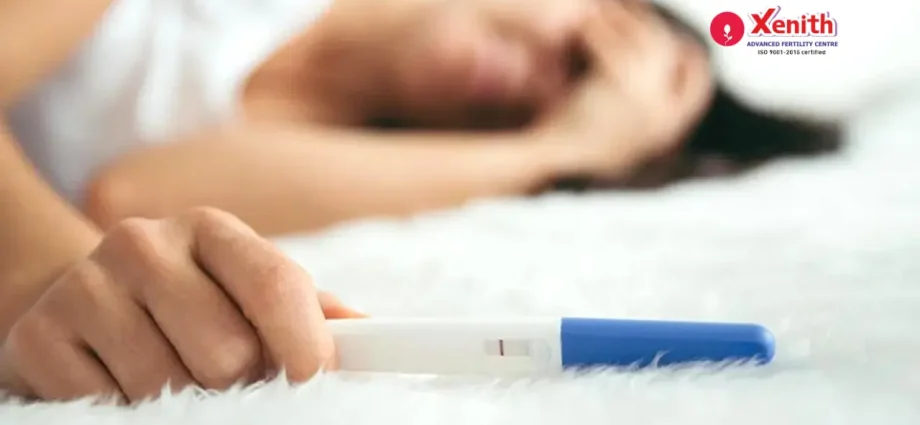Contents
How long does it take to repeat IVF?
According to statistics, only about 30-40% of cycles lead to pregnancy. IVF failure can be caused by a number of factors:
- poor quality embryos. Optimal use of embryos from 6-8 cells. Such indicators indicate a good division process;
- size of the endometrium. The structure and size of the endometrium plays an important role in the success of implantation. The best results are achieved when the endometrial thickness is 7-14 mm at the time of transfer;
- endometrial diseases. The main pathology of the endometrium is chronic endometritis. The disease is usually diagnosed by ultrasound;
- uterine pathology. These include the cervical factor, obstruction of the tubes, hydrosalpings;
Hydrosalpings is a pathology in which fluid accumulates in the cavity of the fallopian tubes. After removal of the fallopian tubes with this pathology, patients manage to become pregnant.
- genetic factor. Doctors do not have an unequivocal opinion on this matter. In some cases, doctors advise patients to take a karyotype test.
According to experts, the inversion of the 9th chromosome can be the reason for the lack of pregnancy or miscarriages.
- immune diseases. In some cases, in the absence of any obvious reasons for the lack of pregnancy, doctors advise patients to undergo an immunological examination of the body.
The question of how long it takes to repeat an IVF attempt is decided individually in each case. This period depends on the state of health of the woman, as well as the reasons why the first protocol was unsuccessful.
The most optimal period that is given to the patient for recovery is 3 months. During this period, the woman has time to rest and recover, pass all the tests and be re-examined.
If the IVF attempt took place without ovarian stimulation in the natural cycle, the next protocol can be prescribed already in the next menstrual cycle, that is, after 2 weeks.
A miscarriage or missed pregnancy takes longer to recover, as these situations require curettage of the uterine cavity. After that, antibiotics, anti-inflammatory drugs are prescribed. The patient must undergo a course of rehabilitation, and then preparation for the IVF procedure. In this case, a pause of 6 months is recommended.
What are the tests for repeated IVF
After an unsuccessful IVF attempt, it is necessary to do an ultrasound of the pelvic organs, hysteroscopy, which will show the features of the structure of the endometrium, the features of the uterus. It is necessary to donate blood for hormones, an extended blood test, urine, visit a mammologist.
For couples over 35 years of age, as well as for patients who have undergone several unsuccessful IVF attempts, it is advisable to visit a geneticist and do karyotyping tests. It is also important to identify possible immune factors that prevent pregnancy.
In the event of a miscarriage or a frozen pregnancy, a woman will have to do the same tests and, in addition, obtain the conclusion of a genetic laboratory that examined the tissues of the embryo after a miscarriage or a frozen pregnancy. Such studies will show whether the baby had genetic pathologies or other factors became the cause of the miscarriage.
Where can I do IVF?
Repeat IVF is best done by the same specialist and in the same medical institution. Your attending physician is already familiar with the characteristics of your body, the causes of infertility and analyzed the factors that led to failure. A new specialist will have to study your history from the very beginning.
Expert Commentary
A second IVF attempt can consist of both re-stimulation and the transfer of a frozen embryo obtained during the first stimulation, ”notes Reproductologist Tatyana Kobeleva. – The probability that the embryo is implanted is on average 40%. After 38 years, this figure drops to 28%. When receiving several embryos at once, the probability increases to 80%.
Repeat IVF is best done in the same place where the first attempt was made with ovarian stimulation.
If no embryos were obtained in the previous attempt, this is a low response case. In this case, it is necessary to switch to stimulation as soon as possible. In these patients, the pregnancy rate is lower than in those who managed to obtain high-quality embryos.
There is no clear figure limiting the number of IVF attempts. Experience shows that there are no hopeless situations. To achieve the result, dialogue between the patient and the doctor is important.
Popular questions and answers
How to do repeated IVF according to compulsory medical insurance?
What to do if IVF attempt fails?
– age of the woman;
– somatic diseases;
– psycho-emotional state;
– hereditary pathologies;
– lifestyle and adherence to doctor’s recommendations.
First of all, don’t despair. If the second IVF was not successful, this does not mean that infertility is invincible. After a repeated unsuccessful attempt, experts recommend resting and recovering, being examined and identifying the causes of failures.










